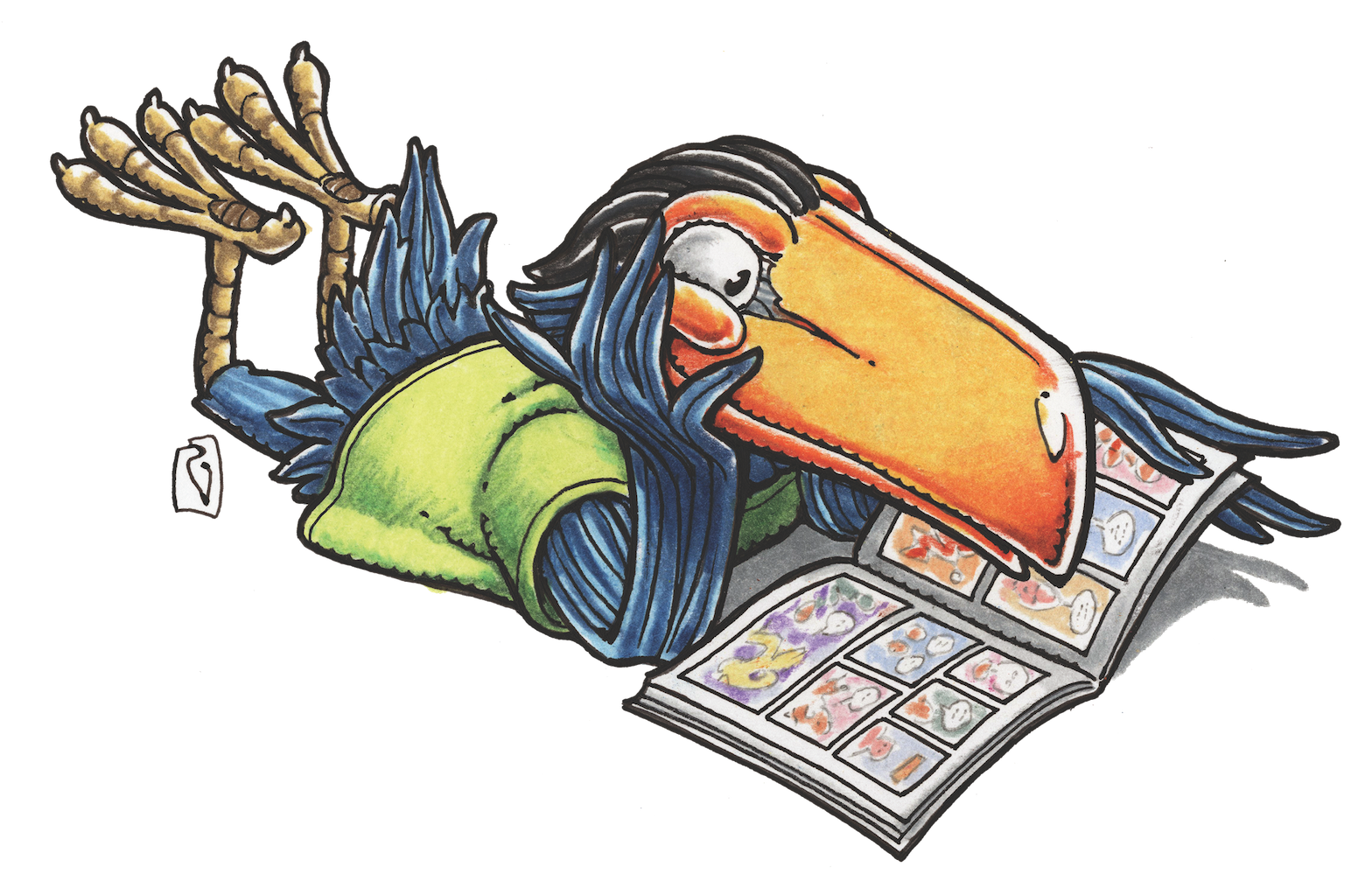MARC BERNARDIN’S DEVOURER OF WORDS
Devourer of Words 039: Comic-Con Questions, Answered


I’ve given a decent amount of advice for writers during convention season—posts here on “Convention Season” and here on my own experiences at Comic-Con—so with Comic-Con 2016 barreling towards us, I figured I’d see what specific questions you lot wanted answered.
So I asked you. Here are some Qs harvested from my Twitter feed (I’m at @marcbernardin, if you’re interested in playing along). Hopefully they will add a little something to your convention experience this year.
From Tyler Westhause (@twesthause): “What are the essential ‘Must Do’s’ at a convention.”
That’s actually really hard to say, as that depends entirely on the kind of convention you want to have. As I’ve said before, success at a con as massive as San Diego is about defining your expectations. Are you there for comics themselves? Are you more of a TV fan or a movie fan? Do you know other people attending—does it become more of a social event that anything? Are you a cosplayer?
But without knowing the specifics, I’d say to set three goals: the dream, the longshot, and the sure thing. And then try to make those happen. Let’s say you’re a comic book writer. The dream should be landing some actual paying work from a publisher. Possible to achieve, but highly unlikely unless you’re already a working pro.
The longshot could be getting into an industry party. Definitely not impossible, if you know where to look. But not the easiest ticket in the world to score.
And the sure thing could be meeting a potential collaborator. Artists, editors, publishers— they’re all there. Most of them have established time at a booth somewhere. Track ‘em down. Shake their hands. Tell ‘em who you are and what you want to do. Some will be more receptive than others, but meeting them is on the table.
From Tom Markham (@DarthBreesus): “As someone who has never gone, how are events set up? Do they overlap or can you see all there is to offer?”
There is no way to see everything. Absolutely not possible. As I told Tyler above, you have to decide for yourself what your priorities are. But there are four days of Comic-Con, and every half hour there are dozens of official events to choose from—panels, screenings, signings—all happening at the same time. Not counting whatever unofficial events are happening away from the convention center.
Choose wisely.
From David Cava (@CavaDavid10): “Where do you go to learn how to write for comics? How do you get editors to read your stuff?”
I’ll answer the second part, first: Editors will not read your stuff. By and large, this is the great disadvantage of being a comics writer as opposed to being a comics artist. An editor can look at three pages of interior art and know if an artist is ready for the big leagues—or can be shaped into one without much hassle. You can’t look at three pages of a script and know if a writer can do much more than just type. Basically, you need to be published—in any fashion. Webcomics you print out, fanzines, ashcans, indie stuff … any of it will serve you better than approaching cold with a script for even a pitch. Having a finished version of your work will show that SOMEONE took a risk on you—the artist, a publisher, etc—and you have actually seen a piece through to completion. That goes a long way.
As for how to write comics, I’d look at books like Brian Michael Bendis’ Words for Pictures, Mark Salisbury’s Writers on Comics Scriptwriting, and Scott McCloud’s Understanding Comics and Reinventing Comics. (Editor’s note: Check the Comic-Con Programming Schedule for possible panels and workshops on writing comics. The schedule will appear online approximately 2 weeks before the event.)
And then put those books down and start writing. Those books will tell you how to format, will give you the basics of how comics themselves work, but they can’t tell you which stories to tell or how to tell them the most effectively. Only experience will do that. So start amassing experience.
From Marry Banilow X (@BackAgainBen86): “What was your best/worst #SDCC experience?”
Best experience: Pitching AiT/Planetlar publisher Larry Young the idea for my first ever comics work, the original graphic novel Monster Attack Network, over lunch and having him buy it on the spot. It was a fantastic experience for obvious reasons. (Runner up: Crashing the Nerd Machine party in 2014 and dancing until 4:00 AM with, among others, half of the Whedonverse cast and the King in the North. And then that other time I told Battlestar Galactica’s Mary McDonell that it was okay with my wife if she moved in with us, because she is that awesome.)
Worst experience: I honestly don’t have one. You have to understand: Every time I’ve attended Comic Con, I’ve either gone as a member of the press or as a professional (most times as both.) As such, my convention experiences are, frankly, ridiculous. Statistically speaking, no one does Comic-Con the way I (and some of my contemporaries) do Comic-Con. So even when I am pissed about one thing or another at Comic-Con—a panel I couldn’t get into, a party I wasn’t invited to attend, a meeting that got canceled—I completely understand that me complaining would be like me saying that my diamond shoes are too tight. Champagne problems, to be sure.
Marc Bernardin’s Devourer of Words appears the third Tuesday of every month here on Toucan, except next month, which is July, and we’re pretty sure something else is happening.